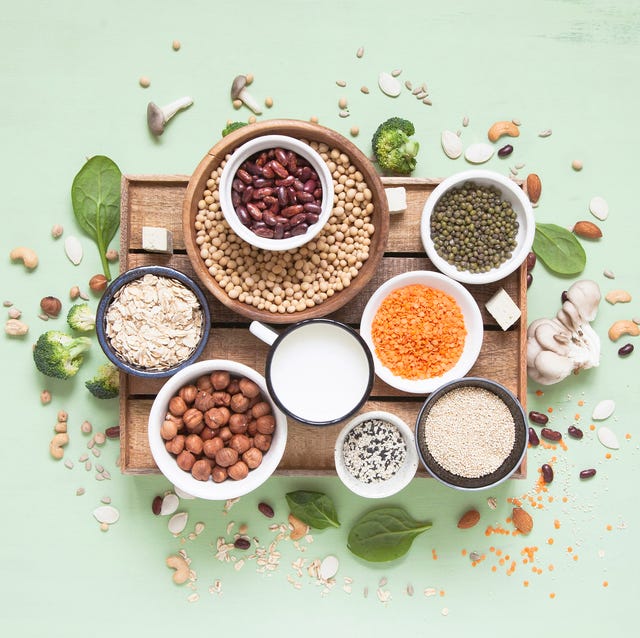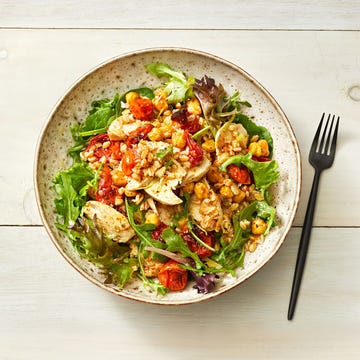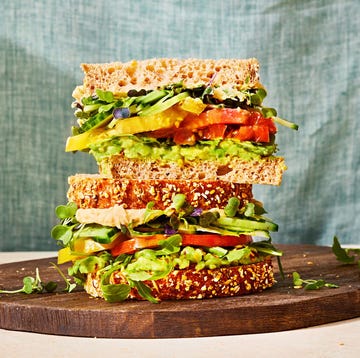11 High-Protein Carbs, According to Nutritionists
Yes, these yummy, good-for-you foods contain a healthy serving of both carbohydrates and protein.

We've been independently researching and testing products for over 120 years. If you buy through our links, we may earn a commission. Learn more about our review process.
If you're interested in nutrition, you’ve likely heard about “macronutrients” or “macros.” They’re the nutrients your body needs in large amounts to function at its best. Protein and carbohydrates are two of the most essential, playing key roles in fueling your body and supporting overall health.
Though they’re often talked about separately, protein and carbs make a powerful pair — especially when found in high-protein carbohydrate foods. When you think of carbs, you might think of bread and pasta, but they’re also naturally found in fruits, vegetables, nuts, seeds, grains and dairy products. Carbohydrates are the sugars your body breaks down into fuel, giving you energy to power through the day. Meanwhile, protein helps build and repair your muscles, among many other vital functions.
“When it comes to meals or snacks, I always recommend pairing carbs and protein,” says registered dietitian Heidi McIndoo, M.S., R.D.. “Carbs give you an energy boost and deliver important nutrients, while protein helps you stay full longer. Together, they’re a smart combo for steady energy and lasting satisfaction.”
How many grams of carbs and protein do you need?
While your body needs both protein and carbs, some sources are healthier than others. The best choices are high-protein carbohydrate foods that are low in saturated fat and rich in nutrients. You should also aim for complex carbohydrates — like fruits, veggies and legumes — which offer more nutrients than simple carbohydrates and digest more slowly. That slower digestion means steadier energy and leaves you feeling full for longer.
The current Dietary Guidelines for Americans recommends 130 grams of carbohydrates and .8 grams of protein per kilogram of body weight. However, these are just general guidelines — needs vary from person to person depending on factors like age, activity level and fitness goals. There are plenty of tools out there to help you calculate your individual macronutrient needs (such as this online calculator).
Choosing high-quality sources of both protein and carbs is a win for your health and your taste buds. On your next grocery run, look for these healthy choices that offer the best of both worlds.
Melissa Prest, R.D., D.C.N. is a registered dietitian nutritionist and holds a Doctor of Clinical Nutrition degree from Rutgers University. Melissa owns Kidney Nutrition Specialists, a nutrition practice dedicated to helping individuals living with chronic kidney disease, and is the Foundation Dietitian for the National Kidney Foundation of Illinois where she focuses on disease prevention, health education, and nutrition consultation.

Readers Also Read

What Not to Mix with Protein Powder

25 Best High-Protein, Low-Carb Foods

The Best High-Protein Toppings to Add to Your Salad

The 12 Best Hand Creams


















